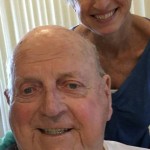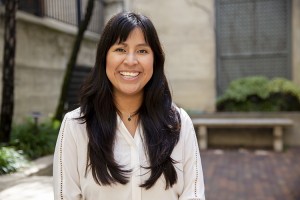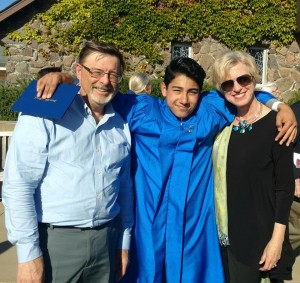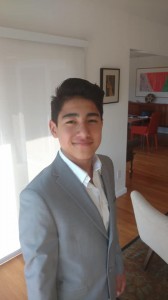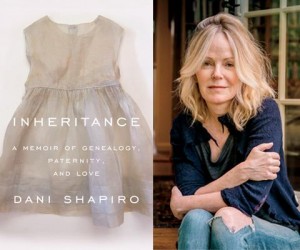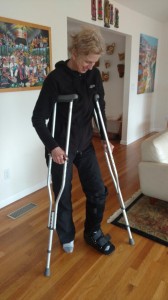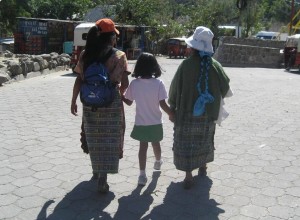Archive for the ‘Uncategorized’ Category
Adoption as universe
Saturday, August 24th, 2019Eulogy for my father
Tuesday, August 20th, 2019My father’s funeral was a year ago today, in San Diego. Today is also his birthday. He would have been 91. I’m posting the Eulogy I wrote and said at his funeral Mass, mainly because I want to keep track of it and this is a good way. It’s strange because when my father was alive, I never would have described us as “close”–our relationship was complicated in the way every relationship is complicated–yet I miss him tremendously, every day, as much as I miss my mother and in some ways, more so. In a few years, I might have enough distance to write about my father, and the power he had over me, over all of us in the family. But for now, I’ll post his Eulogy, and remember him with love.
Good morning. I’m Jessica O’Dwyer, Bob’s third daughter. Bob—and his late wife, our mother, Gerry–had five children, eight grandchildren, and one great grandchild. On behalf all of us, thank you for coming. Thank you especially to our Uncle Roger, Bob’s youngest brother, and our cousin Sean, for traveling from Texas. Thank you to the community at San Rafael, where Bob attended Mass regularly and, afterward on Sunday, consumed many donuts with good friends.
Bob’s Catholic religion was a guiding principle in his life. Perhaps THE guiding principle. He raised his five children Catholic, herding us to Mass on Sundays and Holy Days. He sent us to Catholic schools and made sure we received the Sacraments. More than that, he led his life according to the Golden Rule: Love God and love your neighbor as yourself. Beneath his rough exterior, Bob was kind. Compassionate. He was the first to extend his hand to help when it was needed. He understood hardship.
He also loved a good laugh. Bob collected jokes—Irish jokes, Jewish jokes, Italian jokes. Jokes that began “A priest, a minister and a rabbi walked into a bar.” He loved comedians from the Marx Brothers to Ellen DeGeneres. He’d watched every Seinfeld episode so many times he could quote the dialogue.
To his family, Bob was protector and provider. He rose at 4:30 AM to catch the commuter train in our New Jersey town to the high school where he taught in the South Bronx. When school was out, he caught another train downtown where he supervised a night school. Weekends, he did odd jobs for extra cash; summers, he “shipped out” to exotic ports, working as an engineer. When he was scheduled to pick us up, we never had to worry if he’d be on time. His adhered to the motto: “If you’re not early, you’re late.” My mother called him “Johnny on the Spot.”
And oh, how he loved her, his wife Gerry. Up until his very last days, he’d marvel that he’d gotten so lucky, that they found each other, that they’d shared such a beautiful life. They met on a blind date and fell in love at first sight. Theirs was a grand and happy union that lasted 63 years. I have no doubt they’re together now.
Bob was an avid bridge player who loved classic films, historic documentaries, and good food. On Saturdays, he cooked spaghetti sauce while Italian opera played on the radio. His Thanksgiving stuffing was legendary. (His secret was ground beef, cashews, and hot sausage. Lots of spices.)
Bob was opinionated and vocal, a writer of letters to the editor, including one from the 1980s’s that warned against the presence of “internal passports,” published in the New York Times. He was a master at agreeing to disagree. He believed in the dignity of all people, equal education and equal opportunity.
Bob’s presence was large and so was his heart. We miss him already.
English and Spanish
Tuesday, July 16th, 2019All around the world, people speak more than one language, but in the U.S., increasingly, speaking Spanish or anything besides English feels like a political act. We live in California, where my Guatemalan-born children frequently are assumed to speak Spanish. My daughter Olivia, who speaks quite well, describes this assumption as “triggering.” The other day, Olivia and I were chatting to each other in English while waiting to make a purchase at Macy’s. The cashier, a bilingual speaker, addressed Olivia directly and asked, “Hablas español?”
Mateo graduates
Tuesday, June 11th, 2019Our annual party
Wednesday, May 22nd, 2019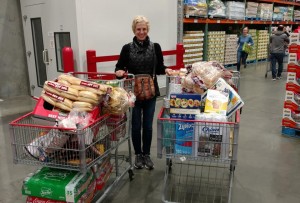
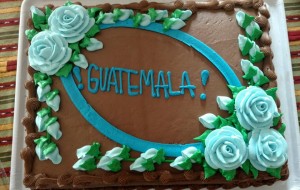
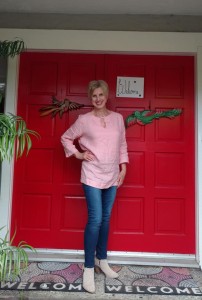 I channeled my Rockette mother as I struck a pose and greeted guests at our annual party for adoptive families with children born in Guatemala. I love this day that brings us together to catch up, connect, laugh and cry. How blessed I am to be part of our community.
I channeled my Rockette mother as I struck a pose and greeted guests at our annual party for adoptive families with children born in Guatemala. I love this day that brings us together to catch up, connect, laugh and cry. How blessed I am to be part of our community.
The party was Sunday, which meant Costco run Saturday. Once again, I was that frantic woman pushing two carts through the aisles and ordering cake. The Guatemalan flag is light blue and white; hence the color choice.
Cheers!
Book review of “Inheritance” by Dani Shapiro
Wednesday, April 10th, 2019
I finished reading Dani Shapiro’s newest memoir, Inheritance, and highly recommend it. Here’s a one-sentence plot summary: “A 54-year-old writer takes DNA test on a whim and discovers the father who raised her is not her biological father.”
Dani was conceived with donor sperm in the 1960s, at a clinic in Pennsylvania. At the time, donor sperm was mixed with sperm of the father, and Dani’s parents (both deceased) never knew whose sperm created Dani. The story told to Dani was that her parents had trouble conceiving, and visits to a clinic fixed that. The donor himself was promised anonymity. He may or may not have other donor-created children out in the world currently.
The memoir is especially timely because of our cultural moment, when DNA kits are available and cheap. As I’ve noted previously, we in the adoption community have dealt with family complexity for years, but for most people, the information that a parent is not blood related comes as a life-upending shock.
The Inheritance narrative reads like a detective yarn as Dani, her husband, and the genealogy experts they consult unravel her history. Throughout, Dani poses ethical questions about what a person who is donor-conceived has a right to know regarding her biology. But as she points out, such questions are becoming increasingly irrelevant as anyone can spit in a vial and discover unknown parents, brothers, and sisters. The implications of this reality are far-reaching.
To me, as an adoptive parent, the equally compelling question is addressed in the memoir’s parallel thread: the question of identity. Dani wrestles with identity on every page. Who am I, really? she wonders. Who am I if not the person I thought I was, if my story is different from the one I believed? Who is my ‘real’ father? What does being a father mean?
“Who am I really?” is the question asked by many people who are adopted. And on some level, the question never goes away. Answers evolve over a lifetime.
Inheritance is one of the most probing, insightful, beautifully written explorations of the meaning of family and identity I’ve every read. Chapter by chapter, Dani puts the reader right beside her as she comes to terms with her new truth: from denial and anger to understanding and acceptance. Inheritance is not written specifically about “adoption,” but its reflections will resonate with the adoption community. Dani loved the father who raised her and demonstrates a profound, driving need to know her birth father. Both these statements are true, and worth pondering.
Inheritance also offers much to think about to anyone who is donor-conceived or considering donor conception. Thought leaders in the fertility industry should be required to read Inheritance.
I’ll leave you with two quotes. The first is said by Dani’s ninety-plus -year-old Aunt Shirley, and the second by Dani’s friend and colleague, Rabbi David Ingber.
“Finding all this out is a door to discovering what a father really is. It isn’t closure—you may not get to have that—but it’s an opening to a whole new vista.” (p. 138)
~Aunt Shirley
“You can say, ‘This is impossible, terrible.’ Or you can say, ‘This is beautiful, wonderful.’ You can imagine that you’re in exile. Or you can imagine that you have more than one home.’” (p. 209)
~Rabbi David Ingber
A note from my mom
Tuesday, April 9th, 2019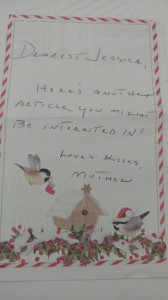 One of the benefits of a torn calf muscle is being forced to sit down. For the past few days, I’ve parked myself downstairs on a small stool and sorted through boxes. This is part of my ultimate plan to carve out a permanent space for a writing desk for me. Currently, I write on a collapsible Costco table that stays in our guest room until guests arrive, which is often, and I’m compelled to take the table down. (Not that our guests would complain! Just that my papers and books overwhelm the space. Bottom line: I need a surface that is permanent.)
One of the benefits of a torn calf muscle is being forced to sit down. For the past few days, I’ve parked myself downstairs on a small stool and sorted through boxes. This is part of my ultimate plan to carve out a permanent space for a writing desk for me. Currently, I write on a collapsible Costco table that stays in our guest room until guests arrive, which is often, and I’m compelled to take the table down. (Not that our guests would complain! Just that my papers and books overwhelm the space. Bottom line: I need a surface that is permanent.)
Today, I found this note from my mother, one of hundreds I’ve saved. She was a faithful correspondent, always clipping and sending me articles: about adoption, Guatemala, child-rearing, museums, the dance world. Her handwriting is so distinctive and energized, like my mother herself. Even her choice of stationery is revelatory.
I miss her every day.
Dancer down
Wednesday, April 3rd, 2019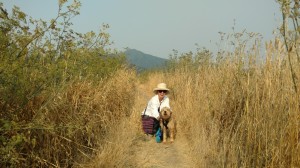 I tore my left calf muscle, dancing if you must know. Practicing a dance routine to be more precise, awakening my dance gene long-dormant after decades of neglect. Six weeks to recover. I’m missing my lovely walks with Charlie, who may be more upset about this turn of events than I am.
I tore my left calf muscle, dancing if you must know. Practicing a dance routine to be more precise, awakening my dance gene long-dormant after decades of neglect. Six weeks to recover. I’m missing my lovely walks with Charlie, who may be more upset about this turn of events than I am.
I’m using the time to:
Read more (one of my eternal goals, hard to achieve because of my guilt over sitting down). I’ve finished reading one book and today will begin another.
Re-work the beginning of my novel, to draw out certain traits of the main character, sooner. (Will send to Beta readers for their impressions.)
Re-design my blog and web page.
Stay off my leg so I can do these things.
Just when we think we have everything under control, we realize we have nothing under control. That’s the lesson I constantly must re-learn.



 ShareThis
ShareThis